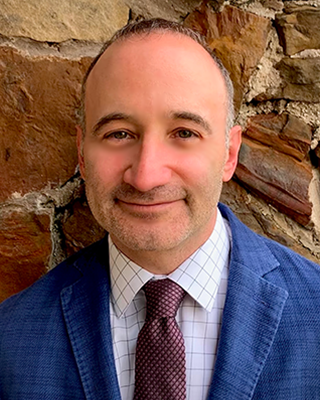
To celebrate Pride, we've collected experiences and insights from just a few of our researchers and scholars studying areas of interest in LGBTQ+ art, communities, and health. Below, learn more about Dr. Steven Safren, a clinical psychologist and the Director of the Center for HIV and Research in Mental Health (CHARM) and the Health Promotion and Care research program.
What are your research and scholarship interests?
I have several research and scholarship interests. Although primarily I work in the field of HIV and mental health, this broadly applies to health behavior change, adherence and persistence in care, as well as behavioral and biobehavioral HIV prevention. Because HIV differentially affects men who have sex with men, sexual and gender minority individuals, particularly gay/bisexual and other men who have sex with men, and transgender women are most affected. I am also interested in sexual minority stress and sexual minority health. I am a clinical psychologist, and most of my funded research studies are intervention trials to help mental/behavioral health and health behavior.
What makes Miami a unique place to conduct this research?
Unfortunately, Miami is the city in the U.S. with the highest HIV incidence (new infections) of any U.S. city. It also has one of the highest prevalence rates of any U.S. city, and Florida in general has an uncontrolled HIV epidemic compared to the rest of the country. Therefore, this does make Miami a good place for me to do my research. There are also a lot of diverse cultural issues related to health equity, both for sexual/gender minority individuals as well as intersections with racial and ethnic diversity. Hence there is a lot of work that needs to be done locally.
What should we know about supporting LGBTQ+ research and researchers?
Well, there is always the need for funding – the more funding we have the more work we can do to address and mitigate health disparities related to sexual and gender minority concerns. Sometimes LGBTQ researchers, I would say potentially gender minority academics, also can experience micro-aggressions in academia, and it is important to participate in educational and experiential opportunities to keep up to date with how to support colleagues. In general studies, a lot of times there is not a large enough sub-sample to examine group differences with respect to sexual and gender diversity, but it is important to keep study and research forms accurate in terms of the assessment of sexual orientation and gender identity.
How has identifying as LGBTQ+ shaped your experience in academia and in life?
I identify as a gay man, I have a husband and two children. I moved to Miami from Boston about 6 years ago. I love it here and the University has been incredibly supportive of me, my research, my family, and my scholarship. That said, Miami and Florida are very different than the Northeast in terms of sexual and gender minority issues. I feel that being a gay parent in the Boston area is just plain not that interesting. Here in Miami, we typically are the only ones or one of the only ones that we know of in different communities such as the kids’ schools and our Temple.
We have certainly not experienced discrimination, but we have noticed that there are areas for improvement to normalize diversity. This includes having all medical forms or school, camp, etc forms have questions for “Parent 1” and “Parent 2” instead of “Mother” and “Father”. I hope that the political situation improves, and that laws emerge that normalize diversity are promoted instead of these horrible laws such as allowing conversion therapy, banning transgender athletes, and now I see that our Governor is interested in a law that would ban gender assignment surgery.
The professional and academic community can be part of research and scholarship demonstrating how all of this is harmful at the individual and societal level – it makes it harder for sexual and gender minority individuals, and probably results, through downstream effects, in increased rates of mental health problems and even suicidality among sexual and gender minority youth.




